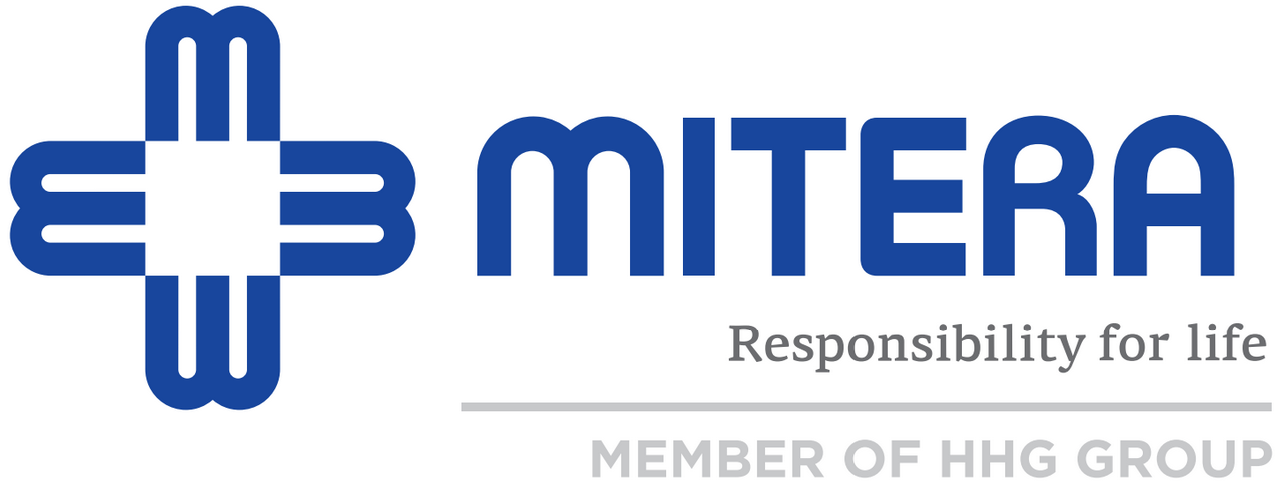
Breastfeeding
Breastfeeding
Breastfeeding is a gift for life mothers offer their newborn babies. Successful breastfeeding requires that mothers are truly committed, calm, patient and available. Breastfeeding commences immediately after childbirth, when the infant shows the first signs of hunger.
It is the best time to start because newborns are quite active and may be breastfed easier, even when nipples are experiencing some difficulties. Therefore, they learn to breastfeed correctly from the very first moment and realize that they continue relying on their mothers for survival. Rooming-in at the maternity hospital fully assists in breastfeeding, as it helps mothers train better in detecting their baby’s signs of hunger and developing communication codes, while it makes the newborn baby feel calm, safe and protected.
.jpg) The milk produced in the first few days is known as colostrum or first milk. It is small in quantity, but sufficient to meet the needs of newborns, given that initially their stomachs cannot receive more than 2.5-7ml per meal, depending on their weight. It has unparalleled quality and nutritional value, while it helps the newborn’s weak immune system mature.
The milk produced in the first few days is known as colostrum or first milk. It is small in quantity, but sufficient to meet the needs of newborns, given that initially their stomachs cannot receive more than 2.5-7ml per meal, depending on their weight. It has unparalleled quality and nutritional value, while it helps the newborn’s weak immune system mature.
The newborn’s stomach capacity gradually increases, as does the breast milk production, which is regulated by the baby’s demand. The more a newborn asks for milk, the more the mother produces. Approximately 95% of mothers are able to breastfeed and meet the nutritional needs of their newborns. Note that children who have breastfed are healthier and smarter, a fact that offers them better prospects in life.
Web: childinfo.org/NutritionReport
The World Health Organization (WHO), UNICEF and the National Breastfeeding Committee recommend exclusive breastfeeding for the first 6 months of life (without breast-milk substitutes or liquid supplements as a complement). Thereafter they recommend that infants receive complementary foods with continued breastfeeding up to 2 years of age.
What are the benefits of Breastfeeding
for the MOTHER
Breastfeeding assists in the uterus retuning to its normal size quicker, while it is also a contraceptive method (to a relative extent).
The risk of breast cancer is lower in mothers who breastfeed, and this is quite significant if there is family history of breast cancer.
Breast milk is always ready to drink, since no preparation or sterilization are required, it is at the right temperature and it costs nothing.
This is important, since the financial benefit is significant both at a family and at a national level.
Breastfeeding also contributes to better regulating the mother’s bodyweight. Weight loss should not exceed 1.5 kilos per month for the first 6 months of breastfeeding. Exceedingly low food intake (<1800 calories daily) should be avoided.
for the CHILD
- The composition of breast milk is fully adjusted to and biologically specialized for the needs of the human body. All mammals produce milk that is exclusive for the nutritional needs of their little ones. In humans, the most important organ is the brain, which develops immensely in the first year of life, even more than any other period of life. Human milk is rich in special nutrients that promote brain development. Just this fact alone renders breast milk irreplaceable.
- Breast milk is live tissue that contains antibodies, enzymes, leukocytes and other defense substances that greatly protect the infant from infections. Colostrum has special nutritional and defense value, that is why is it considered invaluable for the first days of a baby’s life.
- Breast milk protects from obesity and accompanying illnesses (coronary disease, hypertension, diabetes mellitus).
- Children who breastfeed rarely manifest allergic conditions (asthma, eczema) or convulsions from calcium deficiency.
- Children who breastfeed rarely suffer from colic and constipation.
- Breastfeeding is pivotal for a child’s emotional health. Babies who breastfeed in their mother’s arms not only experience joy, but also safety and confidence, feelings that will be accompanying them for the rest of their lives.
- A strong bond develops between mother and child through breastfeeding and physical contact.
Breastfeeding Seminars
MITERA offers free-of-charge seminars on breastfeeding, to pregnant women and new mothers. Read more


